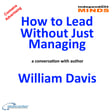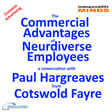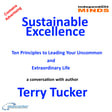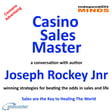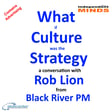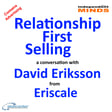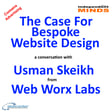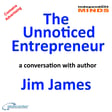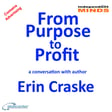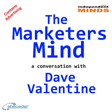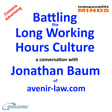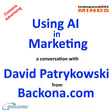
Understanding Three Intelligences IQ EQ FQ – a conversation with Faris Aranki
Faris Aranki the founder of strategy consultancy Shiageto.
Shiageto ensures the success of change management projects and strategy implementation by focusing on building competence across all three intelligences,
1. Intellectual Intelligence
2. Emotional Intelligence
3. Focus Intelligence.
In this episode of the Abecederpodcast The Independent Minds, Faris explains to host Michael Millward the what the three competencies mean. Listening to Faris Michael is prompted to reflect on his career. An activity that Faris cautious him may not be a pleasant one.
Michael describes the times he experienced managers acting without using their IQ, EQ, or FQ. They discuss the different behaviours that Michael may have witnessed if the managers had utilised their different intelligences at the correct time and the correct way.
They conclude by describing the everyday behaviours which demonstrate that a manager has all three of their intelligences.
Find out more about both Michael Millward, and Faris Aranki at Abeceder.co.uk
The Independent Minds is made on Zencastr, because as the all-in-one podcasting platform, on which you can create your podcast in one place and then distribute it to the major platforms, Zencastr really does make creating content so easy.
If you would like to try podcasting using Zencastr visit zencastr.com/pricing and use our offer code ABECEDER.
Matchmaker.fm If you are a podcaster looking for interesting guests or if like Faris, you have something interesting to say Matchmaker.fm is where matches of great hosts and great guests are made. Use our offer code MILW10 for a discount on membership.
Travel
Faris is based in London. Members of the Ultimate Travel Club, can travel to London at trade prices on flights, hotels, trains, package holidays and all sorts of other travel purchases. You can become a member at a discounted price by using my offer code ABEC79 when you join-up.
Fit For Work Look after your health and you will be fit for work.
It is always a good idea to know the risks early so that you can take appropriate actions to maintain good health, so we recommend The Annual Health Test from York Test.
York Test provides an Annual Health Test. An experienced phlebotomist will complete a full blood draw at your home or workplace. Hospital standard tests covering 39 different health markers are carried out in a UKAS-accredited and CQC-compliant laboratory.
Your Personal Wellness Hub has easy-to-understand results and guidance to help you make effective lifestyle.
Visit York Test and use this discount code MIND25.
Visit Three for information about business and personal telecom solutions from Three, and the special offers available when you quote my referral code WPFNUQHU.
Being a Guest
If you would like to be a guest on The Independent Minds, please contact using the link at Abeceder.co.uk.
We recommend that potential guests take one of the podcasting guest training programmes available from Work Place Learning Centre.
We appreciate every like, download, and subscriber.
Thank you for listening.

